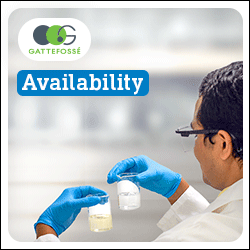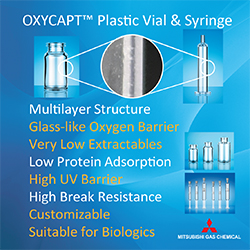4DMT Gains Alignment With FDA on Plan to Lift Clinical Hold on Phase 1/2 INGLAXA Clinical Trial for 4D-310 for Fabry Disease Cardiomyopathy
4D Molecular Therapeutics recently announced alignment with the US FDA on a plan to lift the clinical hold on the Phase 1/2 INGLAXA clinical trial in the US for 4D-310 for Fabry disease cardiomyopathy.
“We are delighted to have reached an agreement with the FDA on our proposed plan to address the clinical hold and continue trial development,” said David Kirn, MD, Co-founder and Chief Executive Officer of 4DMT. “We have shared with the FDA the totality of the most up to date clinical activity and safety data already generated from INGLAXA trials, as of August 2023, and look forward to progressing this critical work on behalf of all patients with Fabry disease.”
In January 2023, the company announced it would pause enrollment in both the US and Asia-Pacific trials after observing instances of atypical hemolytic uremic syndrome (aHUS). Consistent with the company’s plans, the FDA subsequently notified the company of a clinical hold in the US. The Asia-Pacific clinical trial program was not placed on clinical hold by any regulatory agency.
The company’s plan includes a single non-clinical study, currently underway, that will evaluate the safety and biodistribution in NHPs of IV 4D-310 with the R/S immunosuppressive regimen compared to the prior prednisone regimen. 4DMT expects to submit the results to the FDA in Q2 2024. In addition, the INGLAXA clinical trial protocol has been amended to minimize the risk of aHUS following IV 4D-310 dosing, including requiring the R/S immunosuppressive regimen.
In February 2023, the company presented positive interim clinical activity data of 4D-310 from 3 patients with 12 months of follow-up, which demonstrated improvements in multiple FDA-recommended cardiac endpoints along with selective and widespread transgene expression within ~50% of cardiomyocytes in a cardiac biopsy. Additional interim cardiac biopsy and clinical efficacy data, with follow-up of at least 12-18 months for all 6 patients dosed with 4D-310 from the INGLAXA clinical trials, is expected to be presented in Q1 2024.
Clinical investigators have previously demonstrated that the R/S immunosuppressive regimen is well-tolerated and is able to prevent the development of aHUS following IV administration of AAV gene therapeutics.
4D-310 utilizes the cardiac targeted and evolved C102 vector to efficiently deliver a functional copy of the GLA gene (encodes for AGA enzyme) to the heart after a single low dose IV administration. The product candidate is designed to generate high local levels of AGA directly within heart tissue, as well as other affected organs, with the goal of reversing the cardiomyopathy in Fabry patients. Cardiomyopathy is the leading cause of death in the Fabry disease population.
Affecting more than 50,000 people in the US and European Union, Fabry disease is a genetic disorder of the GLA gene that results in the body’s inability to produce AGA, causing accumulation of the substrate globotriaosylceramide (Gb3) in critical organs, including the heart, kidney, and blood vessels. Cardiomyopathy is the leading cause of death in the Fabry disease patient population. Such substrate accumulation can lead to life-threatening hypertrophic cardiomyopathy, heart failure, arrhythmias, various degrees of kidney dysfunction and cerebrovascular stroke. Significant unmet medical needs remain for these patients despite enzyme replacement therapy (ERT), the current standard of care. ERT requires biweekly intravenous dosing which markedly decreases patients’ quality of life. In addition, while benefit has been demonstrated in the kidney, ERT has not been shown to clearly benefit the heart.
4DMT is a clinical-stage biotherapeutics company with three novel, highly targeted next generation AAV vectors currently in the clinic targeting multiple large market diseases in ophthalmology and pulmonology, plus other therapeutic areas. 4DMT seeks to unlock the full potential of genetic medicines using its proprietary invention platform, Therapeutic Vector Evolution, which combines the power of the Nobel Prize-winning technology, directed evolution, with approximately one billion synthetic AAV capsid-derived sequences to invent customized and evolved vectors for use in our product candidates. All of our vectors are proprietary to 4DMT and were invented at 4DMT, including the vectors utilized in our clinical-stage and preclinical pipeline product candidates: R100, A101, and C102. The company is initially focused on five clinical-stage product candidates in three therapeutic areas for both rare and large market diseases: ophthalmology, pulmonology, and cardiology. The 4DMT customized and evolved vectors were invented with the goal of being delivered at relatively low doses through clinically routine, well-tolerated, and minimally invasive routes of administration, transducing diseased cells in target tissues efficiently, having reduced immunogenicity and, where relevant, having resistance to pre-existing antibodies. 4DMT is currently advancing five product candidates in clinical development: 4D-150 for wet AMD and DME, 4D-710 for cystic fibrosis lung disease, 4D-310 for Fabry disease cardiomyopathy, 4D-125 for XLRP, and 4D-110 for choroideremia. The 4D preclinical product candidates in development are: 4D-175 for geographic atrophy and 4D-725 for AATLD.
4D-150, 4D-710, 4D-310, 4D-125, and 4D-110 are our product candidates in clinical development and have not yet been approved for marketing by the US FDA or any other regulatory authority. No representation is made as to the safety or effectiveness of 4D-150, 4D-710, 4D-310, 4D-125, or 4D-110 for the therapeutic uses for which they are being studied. 4D Molecular Therapeutics, 4DMT, Therapeutic Vector Evolution™, and the 4DMT logo are trademarks of 4DMT.
Total Page Views: 587














